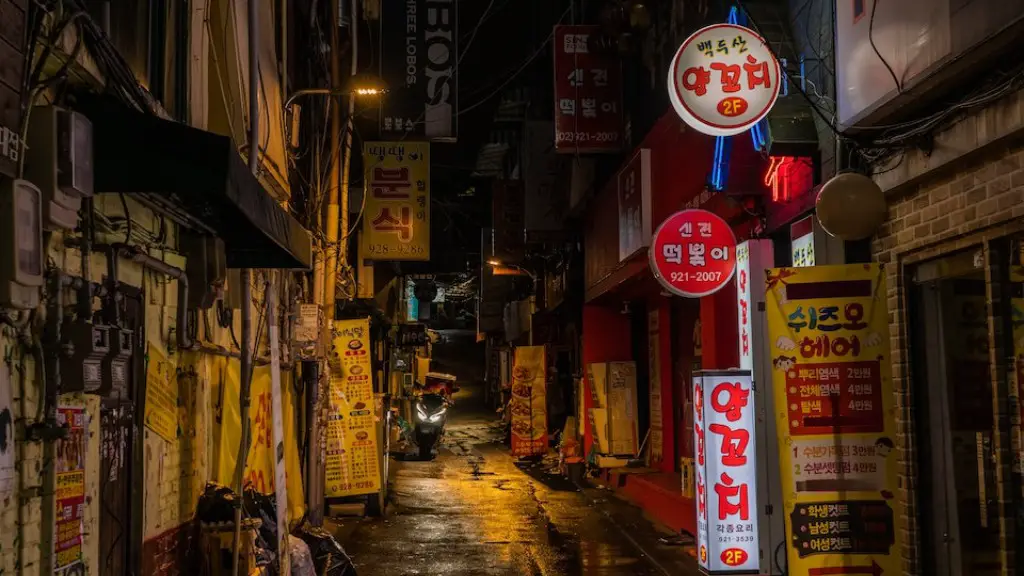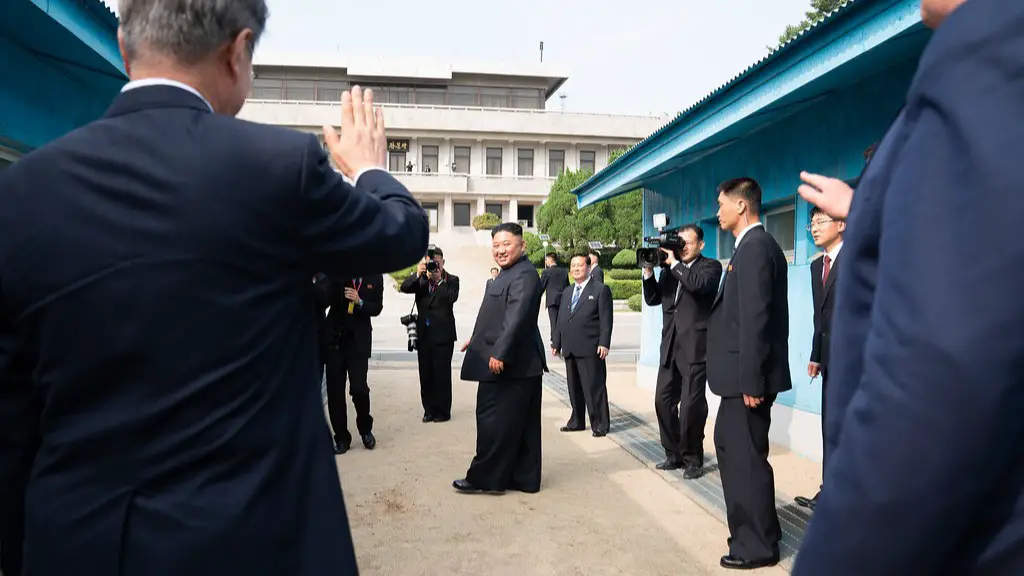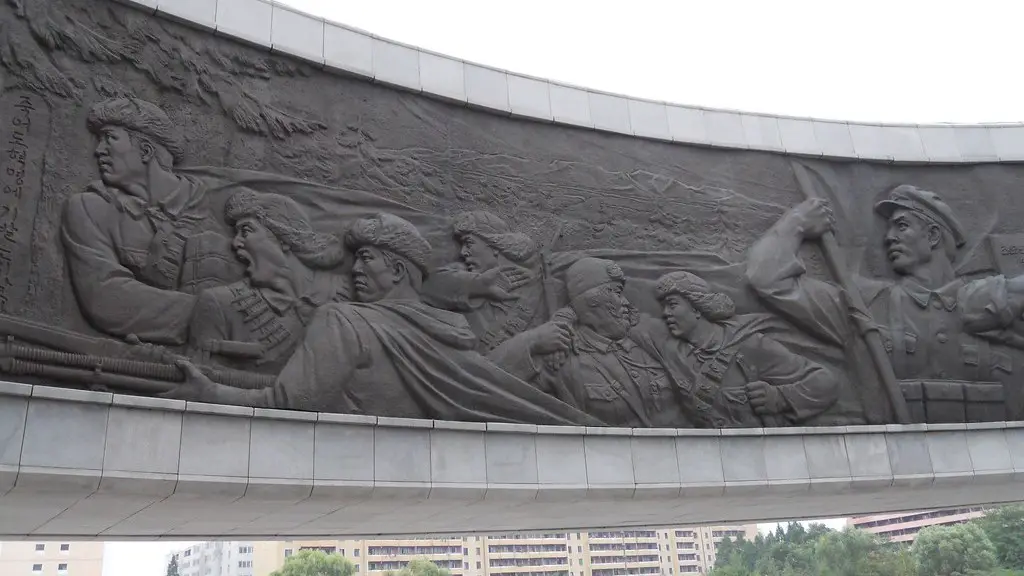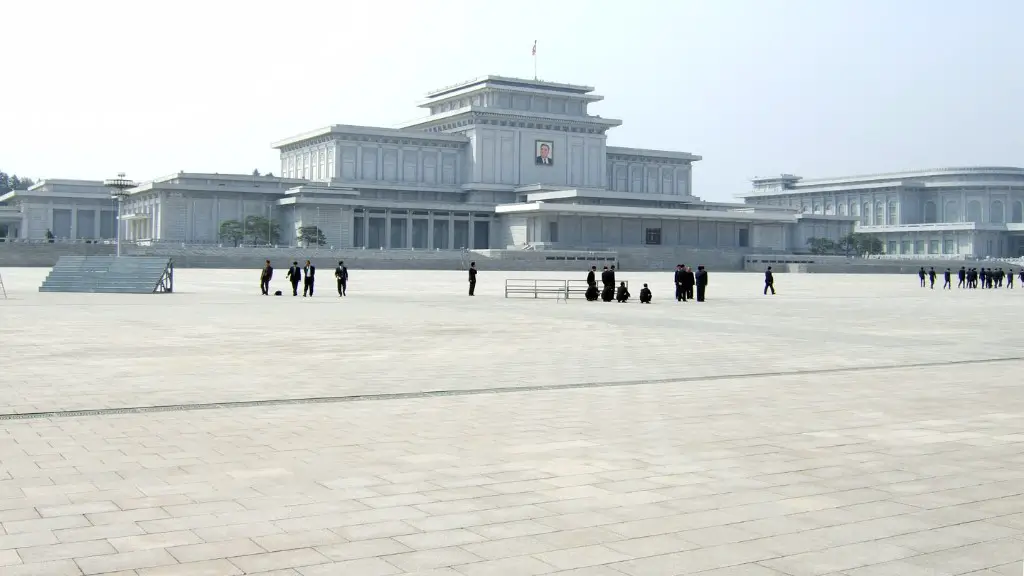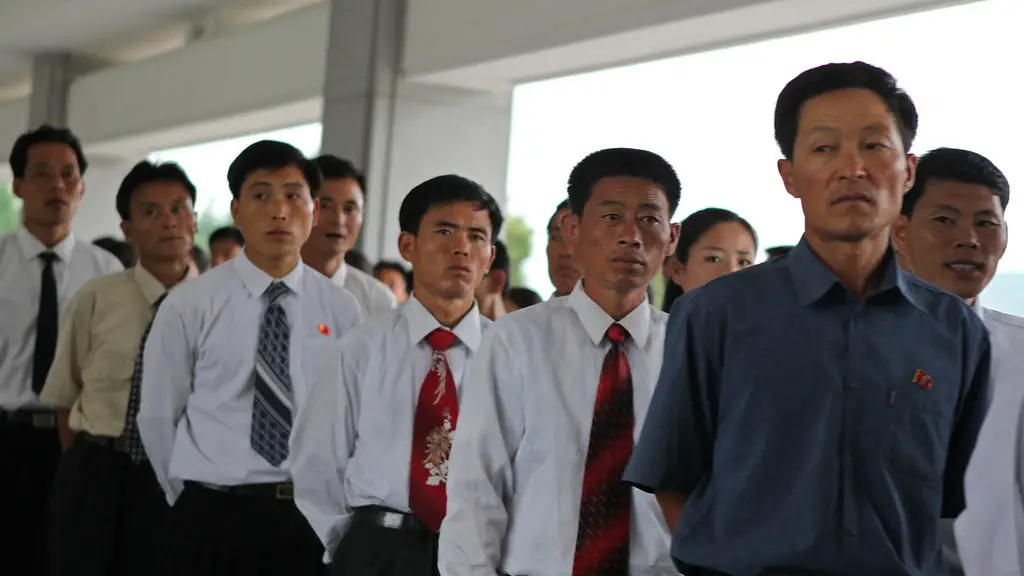North Korean Government
North Korea is an isolated country and its ruling party, the Workers’ Party of North Korea (WPK), wields tremendous control and influence over its population. The government’s inescapable and uncompromising grasp over the people is tightly circumscribed by a widespread network of control and surveillance. Its leader, Kim Jong Un and the WPK, ensconce themselves with formal titles and rituals that add legitimacy to the government’s inhuman nature.
Under this leadership, several of the population’s fundamental rights are restricted. This includes freedom of speech, assembly, and worship. In terms of media availability, all radio and television channels are state-run, meaning that all information is heavily censored, and only the state-approved content is disseminated.
Notably, people living in the countryside are exposed to the government’s harsh treatment in the form of food shortages and poverty. Moreover, the government operates through a mix of influence and terror. This involves Kim Jong Un and other Kwangmyosong-10, the DPRK’s official satellite, through which the government is believed to monitor North Korean citizens, in real-time, for jocund activities.
The government also continues to control and influence the country’s labor market by directly managing all aspects. This ensures that its citizens remain dependent, locked into working through difficult jobs, with extremely low wages, in order to maintain the North Korean government’s status quo.
Complimenting this strict regime is the country’s secretive diplomatic positioning furthered through a highly effective network of international intelligence operations. Moreover, the WPK is known to utilize corruption as a powerful tool to strengthen its grip on North Korean society.
In addition, North Korea is widely believed to regard nuclear weapons as the most effective service showcasing its strength and power. As a result, a vast number of the country’s resources are allocated to maintaining and modernizing their nuclear program.
North Korean Economy
The North Korean economy is highly centralized, tightly regulated, and subject to a great deal of government intervention. This has only been made more stringent since the collapse of the Soviet Union in the early 1990’s. North Korea relies heavily upon export-oriented industries with its major trading partners being China, India and Russia. However, this heavily distorted economy is deeply dependent on irregular contributions from foreign governments, agencies and investors.
In addition to these limits, North Korea’s economic progress continues to be impeded by an obsolete economic infrastructure and international economic sanctions. Moreover, its economic situation is further hampered by its insistence on self-reliance policies that have led to wide scale inflation. Furthermore, the North Korean economy is deeply entrenched in deficiencies in terms of international practices by relying on equally inefficient trade practices and autarky, which have led to stagnation and occasional depression.
One particularly noteworthy aspect of North Korea’s economy is its heavy reliance on military spending. It is estimated that up to 25% of North Korea’s Gross Domestic Product goes towards defense. This is thought to be essential for the North Korean government’s survival as its reliance is used as a tool for maintaining power over the country’s population.
Moreover, in order to survive and stay afloat, North Korean officials have resorted to taking part in a variety of illegal activities including counterfeiting, drug trafficking and cybercrime. This has yielded some success when it comes to earning extra income which goes towards sustaining the country’s economy.
North Korean Sanctions
Given all its infractions, the United Nations (UN) has imposed a number of international sanctions, as a means to prevent activities that are in breach of international law. These sanctions, which range from travel restriction bans to arms embargos, are aimed at dissuading North Korea from conducting any nuclear-related tests or from secretly transferring components related to its nuclear program. Unfortunately, the sanctions have, so far, failed to bring about an effective deterrence.
In the past decade, the United States has implemented further trade sanctions, followed by greater financial sanctions, on North Korea. This has been done with the express intention to force North Korea to end its nuclear weapons development program. In addition, the US also imposed sanctions on North Korea’s trading partners in order to prevent them from providing support to North Korea’s nuclear and missile programs.
In spite of these measures, North Korea has remained a closed country, resistant to any outside attempts to induce economic and social change. Implementing these sanctions has, thus far, been incredibly hard to enforce because of North Korea’s secrecy and unwillingness to engage with the outside world.
Most recently, the UN introduced mandates to target individuals and organisations considered as having been involved with North Korea’s development of nuclear and ballistic missile systems. However, it is difficult to discover and trace these activities, and so these measures are unlikely to be widely effective.
North Korean Relations
Nevertheless, the North Korean government continues to develop relations with foreign countries. This includes China, whom North Korea relies on economically and politically, as well as enlisting the assistance of Russia in terms of military supplies and technology. In this way, North Korea is kept afloat despite the sanctions that are in place, illustrating the country’s determination to resist pressure and reform.
In fact, North Korea’s relationship with other countries has even seen some improvements in recent times. The United States has recently shifted from a strictly hostile stance to a more neutral stance with its leader, Kim Jong Un, even holding direct talks with President Trump. This series of talks have seen North Korea agree to the denuclearization of the Korean Peninsula, with an agreement signed in June 2018.
In addition, North Korea and South Korea have, over the years, established a less hostile relationship. This is best evidenced by the two countries unifying in specific sporting events for the 2018 Asian Games in Jakarta, and more recently for the 2018 Winter Olympics in Pyeongchang. These developments, although strained and contentions, boast a degree of hope for ordinary people of their possible reunification in the future.
North Korean People
Ultimately, all these changes are ultimately felt by the North Korean people. While it may seem that they have little control over the decisions being made, they are relying on their government to improve the lives of its citizens. As much of the rest of the world awaits an improvement in the lives of the North Korean people, there is hope that the efforts of the North Korean government, together with the international community, can improve conditions in the country.
Despite their limited access to the world’s innovation and technology, North Koreans have managed to band together to fight for their rights. Members of pro-democracy groups, such as the People’s Solidarity for Participatory Democracy, continue to seek better living conditions, freedom of information and an end to repression and suppression.
At the same time, large numbers of North Koreans continue to flee their country, in search of the dream of a better life in the South. These numbers have been steadily rising in recent times, with estimates of up to approximately 30,000 defectors. These people are often motivated by a desire for greater freedom of speech and personal development outside of North Korea.
Who Really Controls North Korea?
It is clear that North Korea is controlled by the government, led by Kim Jong Un and the WPK. However, their control and influence over the North Korean population is heavily dependent on their ability to manage and influence external political, economic and diplomatic relations. The North Korean government is reliant on weapons sales and covert illegal activities, as well as the resources of more powerful ally nations.
In addition, North Korea’s nuclear program is thought to be essential in leveraging support and ensuring the country’s independence and security against threats of foreign interference. Therefore, it is clear that, in many ways, North Korea is a puppet of the international community.
It is also true that the people of North Korea do play a key role in the control and influence the government has over the nation, as evidenced by their refusal to accept the government’s rule, its denunciation of government suppression, and the continuing streams of defectors escaping the country.
